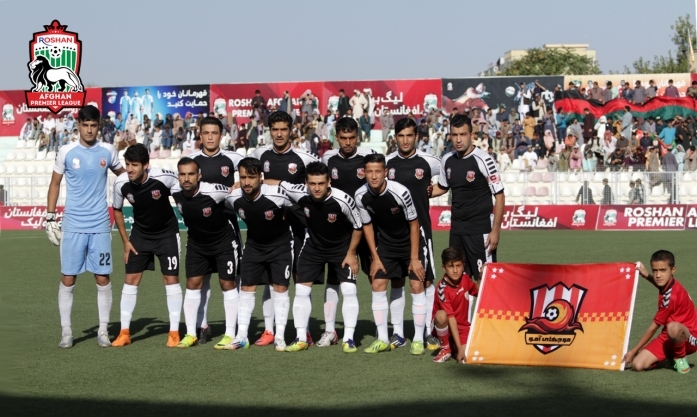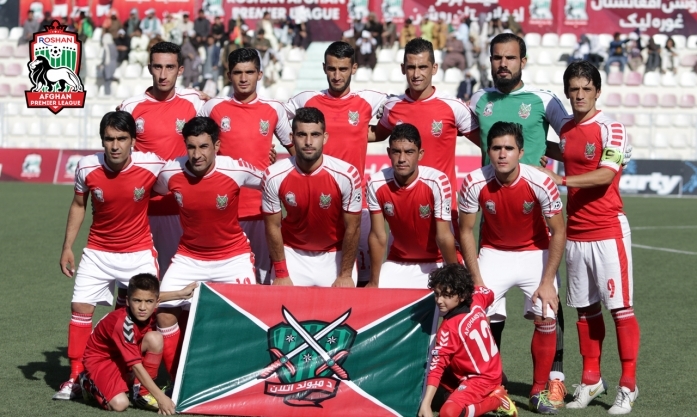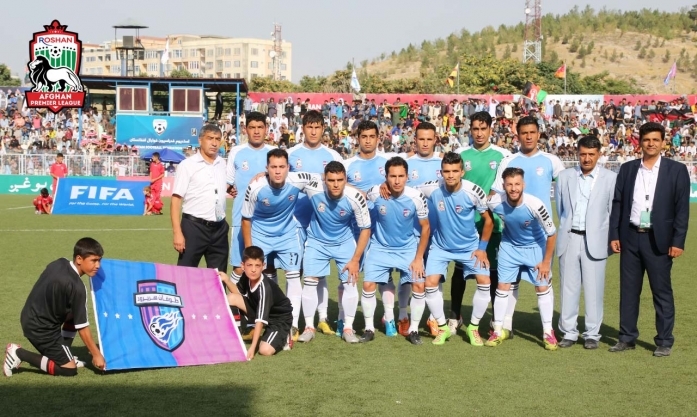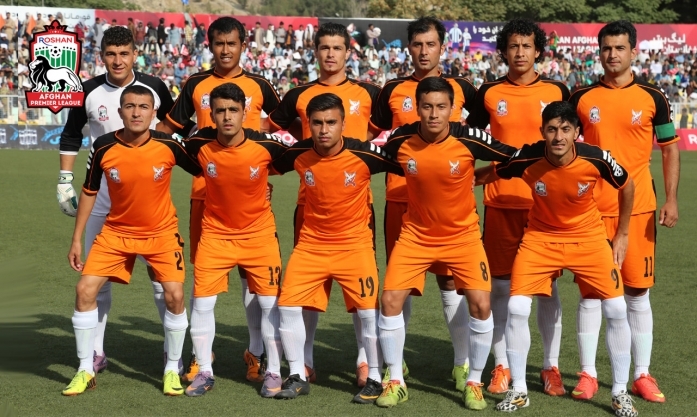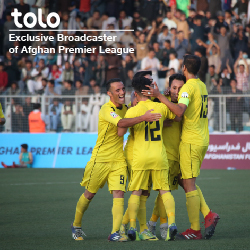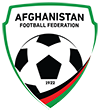-
16.10.2020 17:00 1:0
-
12.10.2020 17:30 2:0
-
13.10.2020 17:30 0:2
-
24.09.2020 17:00 1:0
-
25.09.2020 17:00 3:0
-
28.09.2020 15:30 1:0
-
29.09.2020 15:30 5:0
-
30.09.2020 15:30 4:1
-
01.10.2020 17:30 1:1
-
02.10.2020 17:30 4:1
-
05.10.2020 15:30 1:1
-
06.10.2020 15:30 2:0
-
07.10.2020 15:30 3:1
-
08.10.2020 17:30 1:3
-
09.10.2020 17:30 2:2
Football's road to recognition in war-torn Afghanistan
By Paul Williams, Al-Jazeera
Shaheen Asmayee will become the first Afghan club at an AFC event, but life was not simple for the players growing up.
In the football world that is increasingly dominated by an overpowering win-at-all-costs attitude, it's refreshing to be reminded that, for some, simply participating is equal to winning.
Shaheen Asmayee Football Club, based in the Afghan capital of Kabul, will create history at the end of this month when it becomes the first Afghan side to participate in an Asian Football Confederation club competition.
The new format of the second-tier AFC Cup, which now splits the group stage into five regional zones, means that more clubs from more nations are now eligible to participate.
Shaheen Asmayee, the 2016 Afghan Premier League champions and one of the lowest ranked teams to enter the tournament, will enter at the preliminary stage when they play Tajikistan's Khosilot in a two-leg play-off. Few expect them to get beyond the first hurdle. But just competing in an AFC competition, and showcasing Afghan football, is reward enough for Shaheen Asmayee's star attacker Amredin Sharifi.
Being a footballer in Afghanistan is not like anything the majority of players around the world would have experienced or imagined.
Former Liverpool manager Bill Shankly once said that football is not a matter of life and death, it is much more important.
For some, just playing football is a matter of life or death.
Hashmatullah Barakzai grew up in the northern Afghan province of Baghlan during the Taliban regime. Unlike some of those on the team, Barakzai has lived in Afghanistan all his life. “Growing up amid the clashes and conflicts meant focusing on football was extremely hard for me," Barakzai told Al Jazeera.
During the Taliban regime, things were very unpredictable and it wasn't safe for anyone, especially for children. In order to play, I had to take my dad or grandfather with me to the ground to protect me.
"Even some of the matches had to be stopped at half-time because fighting in the close areas would break out all of a sudden. I was a child at the time and was scared whenever the fights started." "Growing up amid the clashes and conflicts meant focusing on football was extremely hard for me," Barakzai told Al Jazeera.
Afghanistan's rise in the football world has partially been down to the development of the Afghan Premier League, or APL, in 2012. While the league is quite possibly the shortest in world football, running to only six matches for teams that make it to the final, its impact has been profound according to Zia Aria, the deputy commissioner of the APL.
"The APL has played an immense role in the development of football in Afghanistan," Aria said. "It has contributed to national unity among the Afghans. This season, we saw players from Herat, the western region of Afghanistan, go and play for De Spinghar Bazan, the team representing the eastern region of the country.
"These are the perfect examples of cohesion and positive social change that we were aiming to bring about through the APL."
Meanwhile, like RAPL social platforms to discover more about Shaheen Asmayee match and preparations for the AFC Cup 2017 on (www.afghanpremierleague.com) and (www.youtube.com/afghanpremierleague). To see photos of your favorite teams like RAPL Instagram page (Afghanpremierleague.official).
Paul Williams is a freelance writer from Australia, with an expertise in Asian football.
Read the complete article at:
http://www.aljazeera.com/indepth/features/2017/01/football-road-recognit...

















